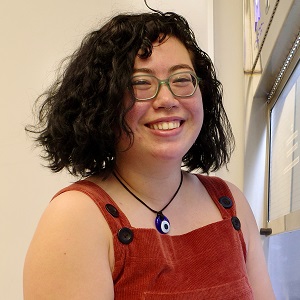Maryann Tung - 2022 SPIE Women in Optics Planner
Graduate Research Assistant in Electrical Engineering
Stanford University, USA
SPIE Student Member
 |
Born in the US |
My love of nanotechnology was sparked by an internship I had in high school at Portland State University. At the time, I was helping make solar cells from various nanomaterials, and I remember being completely blown away that this seemingly uninteresting yellow goo sandwiched between two pieces of glass was actually an incredibly intricate network of nanowires, nanobelts, and nanoparticles. There was something inherently exciting to me about being privy to this invisible world at the nanoscale, and that curiosity continues to drive my work today.
These days, I am a graduate student working on new ways to print computer chips. Modern computer chips are made up of billions of tiny transistors, each one containing components thousands of times smaller than a human hair. As you can imagine, printing at such small sizes is challenging, and the process requires a high degree of precision. I study one such process that uses polymers that self-assemble into nanoscale cylinders with diameters of 20 nm or less. My PhD focuses on shrinking the size of computer memory with these self-assembling polymers.
Throughout my PhD, I have often struggled with Imposter’s Syndrome. I have frequently doubted whether I am cut out for my field and have had periods of feeling very discouraged and alone because of it. I have benefitted a lot from finding a home with other women and LGBTQ+ scientists, and I encourage anyone feeling similarly to find a community in which they feel seen and uplifted.
When I was first starting out in my field, I wish that someone had told me that it’s normal to feel as if you’re struggling. If you’re frustrated that your work isn’t turning out like you wanted, it doesn’t mean that you can’t do it—it just means that you’re inexperienced and have high standards for yourself. Be kind to yourself, give yourself permission to fail, and keep pushing past the doubts that you’re feeling.
For me, STEM is about pushing the boundaries of human knowledge, so I would advise those considering a career in STEM to dig deep into the things that pique their curiosity. When you get into the weeds of any topic, you can always find questions that nobody has answered—and you could be the one to find those answers.